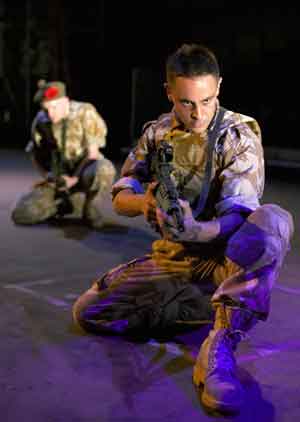When people discover that someone is a theatre critic, they will most commonly ask one of two questions. It will either be, “what can you recommend at the moment?” or, “what is the best show that you have ever seen?”
Coming up with a shortlist in response to the first query is rarely a problem, although it is wise to ascertain the tastes of the questioner before sending them out to spend what could be hundreds of pounds on tickets. When it comes to the second, having many thousands of productions to choose from, it is impossible to offer a definitive answer.
Narrowing the range a little can help. Having attended the Edinburgh Festival and Fringe over a couple of decades and more, the available choice stretches to 1,500 or 2,000 performances.
In the nature of the Edinburgh Fringe in particular, at least half of the offerings have no pretensions to competing with professionals and, while often excelling on their own terms, tend to slip from the mind as soon as the next show starts.
Each year, there will be a handful of really special experiences, many of which go on to tour successfully and please audiences across the UK around the world. The International Festival is something else, with a much higher hit rate but a completely different demographic.
From the vast selection, there is one production that still shines almost two decades after it first saw the light of day.
Gregory Burke’s Black Watch seemed to be a generation or two ahead of its time, and could still pass muster in a competition with almost any show on Broadway in the West End today, not to mention a good proportion of multi-million-dollar blockbuster movies. Viewing it was the kind of experience that sends shivers down the spine and leaves lucky ticket holders desperate for more, even at the end of a long, gruelling performance.
The initial premise showed little promise. Why would anyone other than alumni have any interest in the history of a Scottish army regiment? However, across all those years of Edinburgh trips, no show can compare with the word of mouth in the city that summer, which, in addition to Gregory Burke’s strong reputation built on the unforgettable Gagarin Way, also came with the imprimatur of the newly-launched National Theatre of Scotland, masterminded by Vicky Featherstone, and was steered by ace director John Tiffany, whose cast were impeccably drilled in every sense of the word.
The story itself was unforgettable, often startling and absolutely unique, presenting an oblique view of Scottish and British (particularly colonial) history across the last few centuries, then delving into the realm of politics towards a conclusion that, being real life, was grimly depressing.
However, what took Black Watch into a different league from 99% of shows that this critic has enjoyed or endured was John Tiffany’s imaginative, immersive production in an army drill hall, which at times left audience members literally shaken and, by the end, made many appreciate the history of the regiment at the same time as having a much deeper understanding of the pride and terrors that combine to comprise life in the armed forces, especially in war zones.
Inexplicably, while Gregory Burke has worked on stage and screen in the ensuing period, he has not yet conquered Hollywood. Vicky Featherstone moved on from the National Theatre of Scotland to a decade at the Royal Court, while John Tiffany has become a major player on both sides of the Atlantic, winning awards and acclaim for his direction of Once and Harry Potter and the Cursed Child.
After its triumph in Edinburgh, Black Watch continued to tour successfully, delighting audiences across Scotland and the UK, at the Barbican in London, in New York and on a DVD that still sits proudly on this writer’s bookshelf.
If you can find a copy second-hand somewhere, you will get something of an idea of the thrill of seeing the show live. Sadly, economic constraints across the sector mean that a stage revival in the near future is untenable.
